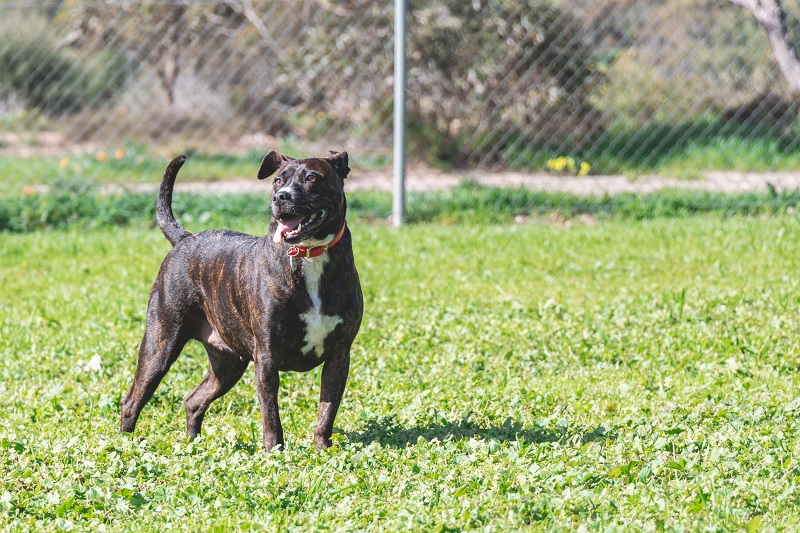Dogs are known for their loyalty and playfulness, but excessive barking can become a nuisance for both owners and neighbors. While barking is a natural behavior for dogs, it can become a problem when it occurs excessively. Not only can it disturb the peace and quiet of your home, but it can also strain relationships with your neighbors. Fortunately, there are practical steps you can take to stop your dog from barking excessively. In this guide, we'll explore different techniques and methods to help you control your dog's barking habits and promote a peaceful living environment.
Understanding Why Dogs Bark

Before diving into how to stop excessive barking, it's essential to understand why dogs bark. Barking is a form of communication for dogs and can serve various purposes, including alerting their owners of potential danger, expressing excitement or frustration, seeking attention, or simply out of boredom. It's crucial to identify what triggers your dog's barking to effectively address the issue.
Common Triggers for Excessive Barking
- Loneliness and separation anxiety
- Boredom and lack of mental stimulation
- Fear and anxiety
- Territorial behavior
- Playfulness
- Medical issues such as pain or cognitive decline
- Response to external stimuli like other animals, doorbells, or car horns
Understanding the underlying reason for your dog's barking is the first step in finding a solution. Now let's dive into some practical tips on how to stop a dog from barking excessively.
Training Techniques to Stop Excessive Barking

Training your dog requires patience, consistency, and positive reinforcement. The following are some training techniques that can help you control your dog's barking behavior.
Teach the "Quiet" Command
One effective way to stop excessive barking is to teach your dog the "quiet" command. This technique works by teaching your dog to be quiet on cue and reward them for their silence. Here's how to do it:
- Start by using a trigger that causes your dog to bark, such as ringing the doorbell or holding their favorite toy.
- As soon as your dog starts barking, say "quiet" in a firm but calm voice. Avoid yelling or getting angry, as this can escalate their behavior.
- Once your dog stops barking, praise them and give them a treat.
- Repeat this process several times until your dog associates the command "quiet" with being silent.
- Gradually increase the duration of silence before giving your dog a treat.
- Practice this command regularly and reinforce it with positive reinforcement to solidify the behavior.
Desensitization and Counterconditioning
Desensitization and counterconditioning are techniques used to change your dog's emotional response to a specific trigger that causes excessive barking. For example, if your dog barks at the sight of other dogs, this technique can help them remain calm and quiet in their presence. Here's how to do it:
- Identify the trigger that causes your dog to bark excessively, such as other dogs or the doorbell.
- Expose your dog to the trigger at a distance where they don't react aggressively or bark excessively.
- Reward your dog with treats or praise for remaining calm and not barking.
- Gradually decrease the distance between your dog and the trigger while rewarding them for their calm behavior.
- If your dog starts barking, remove them from the situation and start again at a distance where they were calm.
- With consistent practice, your dog will learn to associate the trigger with positive experiences and remain calm in its presence.
Use Distraction Techniques
Dogs often bark out of boredom or lack of mental stimulation. Providing them with activities and toys can help keep their minds occupied and reduce excessive barking. Here are some ideas to keep your dog entertained:
- Interactive puzzle toys that dispense treats when your dog solves the puzzle
- Chew toys or bones to satisfy their natural urge to chew
- Playing games like fetch or hide and seek
- Teaching new tricks or commands
- Rotating toys regularly to prevent boredom
Environmental Changes to Reduce Excessive Barking

Sometimes, environmental factors can contribute to excessive barking. Making changes to your dog's environment can help minimize their barking behavior.
Increase Exercise and Playtime
Dogs need regular exercise and playtime to burn off excess energy and stay physically and mentally stimulated. A tired dog is less likely to bark excessively, as they will be too tired to engage in disruptive behaviors. Make sure to provide your dog with daily walks, runs, or play sessions to prevent boredom and reduce excessive barking.
Create a Comfortable Living Space
Dogs crave comfort and security. If your dog is barking excessively due to separation anxiety or loneliness, creating a comfortable living space can help calm their nerves. Consider providing them with a cozy bed, blankets, and toys to keep them occupied and make them feel safe and secure.
Use White Noise or Music
Some dogs may bark excessively in response to external noises, such as car horns or other animals. Using white noise or music can help drown out these sounds and create a more peaceful environment for your dog, reducing their need to bark.
FAQs on How to Stop a Dog from Barking Excessively

Q: My dog only barks when I leave the house. What can I do to stop this?
A: This could be a sign of separation anxiety. Gradually leaving your dog alone for short periods and rewarding them for calm behavior can help reduce their anxiety. Providing them with interactive toys or leaving a piece of clothing with your scent can also help ease their distress.
Q: How do I stop my dog from barking at the doorbell?
A: Teaching the "quiet" command and desensitization techniques can be effective in this situation. You can also try having someone else ring the doorbell while you are home to practice the training with your dog.
Q: My dog barks excessively when they see other dogs on walks. What should I do?
A: Desensitization and counterconditioning techniques can help reduce your dog's reactivity towards other dogs. It may also be helpful to walk your dog during less busy times or find alternative routes to avoid triggering situations.
Q: Can I use punishment to stop my dog from barking excessively?
A: Punishment is not an effective way to control your dog's barking behavior and can have negative consequences, such as increased anxiety and aggression. Positive reinforcement and training techniques are more humane and have long-lasting results.
Q: My dog is older and has started barking excessively. Is this normal?
A: Excessive barking in senior dogs can be a sign of pain or cognitive decline. It's essential to consult your veterinarian to rule out any underlying medical issues that may be causing the barking.
Conclusion

Excessive barking is a common problem faced by many dog owners, but it's not impossible to manage. By understanding why your dog is barking and implementing training techniques and environmental changes, you can effectively control their barking behavior. Remember to be patient, consistent, and use positive reinforcement to see results. With time and effort, you can enjoy a peaceful living environment with your furry companion.



